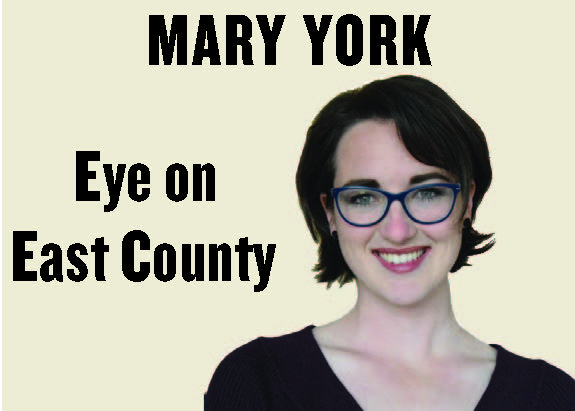“Pan de ajo!” I call out from the kitchen window at the diner where I work part-time – nights and weekends mostly. Sure, I work full-time as a journalist and I go to school part-time, but San Diego is an expensive place to live. So I pull shifts at the diner.
Most of the kitchen staff is comprised of Spanish speakers, and nearly everyone on the floor can speak at least a little. I am a Spanish major and a linguistics minor at San Diego State University, so the restaurant really just feels like a language training ground and I love it.
“Behind you, corazón” says our buser as I lean into the kitchen window and he shuttles past with a dish bin. “When are you going to going to be my girlfriend?” he asks with a grin.
I grin and roll my eyes.
“Travieso,” I say – troublemaker.
“I will take good care of you, mija, I promise,” he insists as I gather the hot plates coming from the window into my arms.
“No te creas,” I reply. “Don’t you have a couple girlfriends already?”
The customers at the counter chuckle as they watch our interaction. There was a time when I would have been offended by being called corazónor amor. The men in my community do not call girls or women sweetheart and love or other endearments unless they are very close. It took me a while to realize there was a cultural gap in my understanding.
Spanish speakers use endearments more often than English speakers. In fact, I was called corazon as frequently when the busers would flirt as when the cooks would yell. For as much as I understood classroom Spanish, watching it play out in all its varying tones, colloquialisms and cultural connotations was like learning it all over again.
Now, I can bounce between the two languages fairly easily, an act called code switching in the linguistics community – jumping back and forth between languages in the same conversation or even in the same sentence.
In linguistics, we also learn about another phenomena: diglossias.
A diglossia is a community where two different languages are spoken by the same people in different circumstances to annotate class, formality or some faction of culture. Go to Ali Baba in El Cajon or one of the many Thai restaurants in East County and you might witness an example of a diglossiac community. English will be spoken in the front of the house to cater to customers, but back in the kitchens you will hear Arabic, Thai or whatever language is used by the staff of that restaurant – the change is a result of social requirements of formality and familiarity. The front of the house is formal, the back is familiar.
The difference is that code-switching occurs as a byproduct of comfortable communication whereas a diglossia reflects culture and class.
Diglossias are not bad, they are simply an incarnation of intangible spheres of culture or social structure that appear to be mutually exclusive.
American political speech operates on a similar playing field. There is a diglossia, so to speak, in politics.
Both the left and the right use mantras and code words when discussing political topics. Nowhere is this more obvious than the world of Facebook debate. I have friends on the right who say things like, “most of the immigrants coming from Honduras are dangerous criminals” and “liberals keep people in poverty so they can keep winning elections,” and friends on the left decry conservative movements by saying “anti-choice people want to keep certain demographics in poverty by banning abortion” and “conservatives think AIDS were killing the right people.”
Sometimes these words are their own, and sometimes they are parroted from memes, blogs and public personalities.
“I can’t believe East County elected a criminal,” a friend bemoaned over coffee and salted steak fries two weeks into November. “They literally chose to elect a man charged with fraud and embezzlement over a brown person. That’s how racist they are.”
“Now hold on,” another friend countered, “That’s hardly fair. Campa-Najjar only lost by like eight or nine percent. In East County, a race that close between a Republican and a Democrat is astounding. He didn’t lose because he’s Middle Eastern – he lost because he’s a Democrat, and barely, at that!”
“Doubtful,” the first friend countered. “Republicans are the most racist contingent in the country. Hunter won because the GOP can’t stomach minorities.”
This conversation puzzled me. I know my friends are not dull-minded, and yet the absolute illogic of these conclusions astounded me.
“Where do you get the idea that Republicans are all racist?” I asked, knowing full-well the answer.
The media. Social media, to be exact. The stream of political consciousness as it has manifested itself online and in conversation, but restrained by the lack of bipartisan participation.
Because our world is shaped by the language we use, the tighter our language use, the more narrow our world. And when political parties – made up of individuals – use absolute language, catch phrases and derogatory or inflammatory speech, it is almost like they are employing a code or a foreign tongue.
They are, of course, preaching to the choir, so the code is understood by their intended audience. By no means do they intend to open cross-sectional discussion with these words. The purpose is to bolster the sidelines, rally the troops and vent off the pressing opinions that have been stoked by the current political climate.
Now, I have no doubt that these illogical, ignorant appeals to pity and pathos did not start out on such dramatic terms – guns already cocked and loaded, pointing each other down with surety and sternness. At some point in the not too distant past, this nation elected a man who believed America could be a “gentler, kinder nation.” We believed that, too. You would never guess that looking at our political speech in 2018.
George H. W. Bush would hardly recognize this country today if he had not been alive to see the transition himself.
So how did our speech become so harsh?
Isolation.
As our circles have become increasingly partisan, our ideas have been allowed to take shape in cruel and often incomplete or inaccurate language.
The problem is that social media is an open platform. It is not unlike a restaurant where even customers in the front of the house can sometimes hear what is being said in the back.
When conservatives refer to the immigrants from impoverished, violent countries feeling to America as terrorists and criminals, they fuel the liberal mindset that Republicans are racist.
When Democrats make the assumption that conservatives only make decisions to promote some kind of racist, classist ideology, they fuel the conservative notion that liberals are naive zealots.
We are talking past each other. No one is taking the time to understand the other, to translate the pro-life, transgender rights, immigration or economics mantras. We are not making an effort to understand the culture and values of those on the other side and so we will remain separate people groups, forever sharing a space but unable to share a common language because of our own partisan constraints.
I want our country to study those who oppose our ideals the way we might seek to learn a second language – it is not enough to learn the words or their basic meanings. We have to learn the culture, the values, the stories behind those words.
I want Americans to be able to code-switch – to understand two streams to thought so well that they communicate about both smoothly and accurately, their speech uninhibited by what the choir expects to hear and their thoughts unaffected by community demands.
Besides, the only real danger that can come of learning a another language is better understanding your own. And what a great thing that would be.
Qué gran cambio sería ese.














